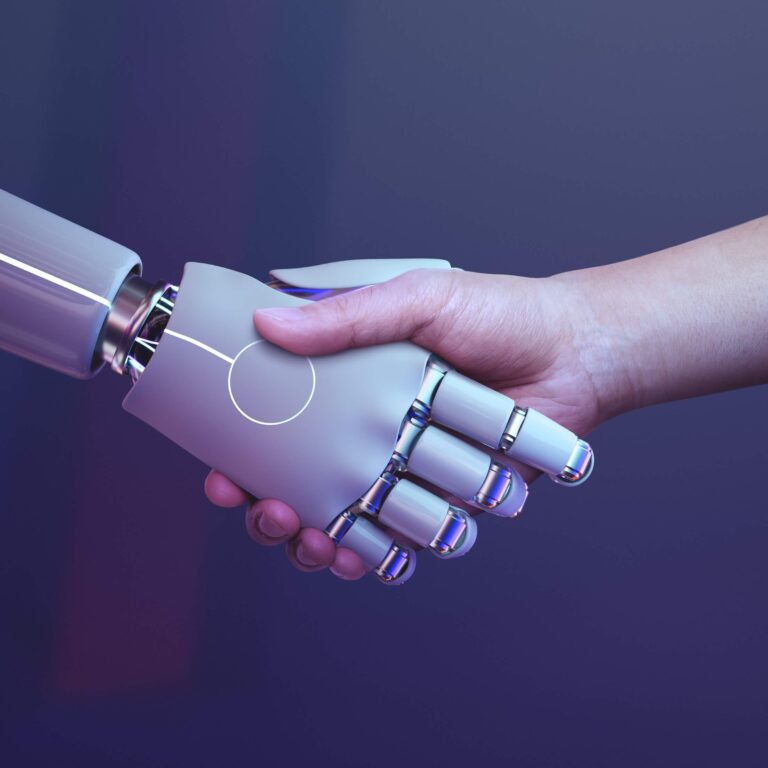
Exploring AT Worthy’s Role in the U.S. Government’s Digital-First Strategy
How the U.S. Government’s Digital First Experience Strategy Reflects AT Worthy’s Principles of Digital Worthiness. Discover the Importance of Digital Worthiness
In years past, hospitality was all about the human touch: greeting guests with a warm smile, providing top-notch room service, and adding personal touches here and there. Fast forward to today, and the landscape has shifted dramatically. It’s no longer just about human interaction; it’s about digital interaction too.
The stakes are high. In a world where every rating counts, ignoring the digital experience can cost you valuable points on your Digital Rating. So, what’s the next frontier for hospitality? Digital Worthiness—where service, efficiency, and technology meet.

Imagine a world where you not only provide excellent service but also cater to the modern, tech-savvy traveler. A digital-first approach isn’t just a ‘nice-to-have’; it’s a ‘must-have’ if you want to secure a higher Digital Rating. Why? Because your Digital Rating isn’t just a number—it’s a reflection of your commitment to providing a seamless, enhanced experience to your guests.
But where does one start on this digital journey? Enter virtual assistants. Whether it’s Alexa, Siri, or a custom-built AI interface, these digital helpers are revolutionizing the hospitality industry.
The benefits are numerous: instant customer service, personalized experiences, and even streamlined backend operations. More importantly, these advantages are precisely the kind your Digital Rating evaluates.
This article will delve into how adopting virtual assistants can not only meet but exceed modern hospitality expectations. We’ll explore how they function, the challenges they present, and the best practices for implementing them in your business. And of course, we’ll discuss how this all loops back to boosting your Digital Rating.
AI has moved from the realm of sci-fi into everyday applications, acting as an unsung hero in many industries, including hospitality. It operates in the background, streamlining operations and enhancing customer experiences. A case in point is Hilton’s “Connie,” the robot concierge powered by IBM’s Watson. Connie helps answer guest queries and learns from each interaction to improve future recommendations.
Automated check-ins, personalized recommendations, and efficient service are already a reality, thanks to AI. A study shows that an astounding 85% of customer interactions will be managed without human intervention by the end of 2023. Furthermore, AI can significantly cut costs; another report indicates a potential reduction of operational costs by up to 30%.
Virtual assistants have become indispensable in the hospitality sector, answering real-time queries and offering personalization at an unprecedented scale. For instance, Marriott International introduced ChatBotlr, which assists guests with tasks like booking spa appointments and ordering room service.
AI technologies can influence various criteria in the AT Worthy evaluation, like customer service efficiency and a tailored guest experience. A recent case study showcased a 25% increase in customer satisfaction scores for a hotel that implemented AI solutions, clearly reflecting an elevated Digital Rating.
Once a buzzword, virtual assistants have become a staple in the industry. They’re capable of not just answering basic questions, but also of performing a wide range of tasks like bookings, providing local recommendations, and more. KLM Royal Dutch Airlines, for example, has a chatbot named BlueBot that helps with booking tickets and providing flight information.
Initially, chatbots were largely script-based and could perform only predefined tasks. Today’s virtual assistants, however, have evolved to be more intelligent, thanks to advances in AI and machine learning. Hyatt Hotels started using Facebook Messenger as an integrated chat solution to handle customer queries in real-time.

One of the key selling points of virtual assistants is the level of personalization they can offer, often exceeding what a human operator can provide due to the vast amount of data they can analyze quickly. A study by Accenture reports that 91% of consumers are more likely to shop with brands that provide offers and recommendations that are relevant to them.
Virtual assistants can play a crucial role in enhancing a hotel’s Digital Rating by offering superior customer service and personalized experiences. A case study involving the Marriott ChatBotlr showed that the chatbot increased guest engagement rates by 20%.
One of the standout advantages of virtual assistants is their availability around the clock. This ensures that a guest can get help whenever they need, whether it’s midnight or midday. According to Chatbots Magazine, companies using chatbots for customer service have reduced their per-interaction cost by 30%.
The smart algorithms of virtual assistants can analyze guest data to provide highly personalized recommendations. From room upgrades to dining options, the level of personalization can significantly impact customer satisfaction and, by extension, Digital Ratings. A report by Business Insider highlighted that 67% of consumers worldwide used a chatbot for customer support, showing a rising preference for digital, yet personalized, experiences.
The seamless integration of virtual assistants in operational activities leads to significant efficiencies. Automated check-ins, real-time updates, and other tasks can be handled effortlessly, contributing to cost-saving and speed. According to Forbes, customer service interactions handled by AI have increased by 400% since 2019.
One of the key technological underpinnings of modern virtual assistants is Natural Language Processing (NLP). This technology enables virtual assistants to understand and engage in natural human language, providing a more intuitive and seamless guest experience.
The prevalence of smartphones makes mobile integration a necessity. Virtual assistants easily integrate into mobile apps, allowing guests to get the help they need on-the-go. The Marriott International’s ChatBotlr is a case in point, providing a wide range of services via its mobile interface.
Incorporating chatbots into your hospitality services can offer significant advantages, from operational efficiency to enhanced guest satisfaction. However, achieving this success requires careful planning, execution, and ongoing maintenance. Here are some best practices that not only boost your brand’s service quality but can also help elevate your Digital Rating.
Before diving in, it’s crucial to establish what you aim to accomplish with your chatbot. Is it customer service, data collection, or maybe something else? According to the Harvard Business Review, businesses that set clear objectives for their AI initiatives are 50% more likely to achieve their goals.
Your chatbot’s efficiency rests heavily on the platform you choose. Look for platforms that offer robust Natural Language Processing (NLP) capabilities and seamless integration options. Gartner reports that 90% of businesses that invest in strong foundational platforms see at least a 30% increase in customer satisfaction.
Your chatbot is only as good as the information it can access. Develop a well-rounded knowledge base filled with FAQs and standard responses to common queries. This empowers the chatbot to provide accurate and helpful information, thereby enhancing the guest experience.
The world of technology is ever-changing, and chatbots are no exception. Continual monitoring and timely updates are essential to ensure your chatbot meets evolving customer expectations. According to a report by Deloitte, brands that frequently update their AI algorithms maintain a 20% higher customer satisfaction rate.
While chatbots can handle many tasks, human interaction is still crucial for more complex issues. Staff training on how to use and manage chatbot platforms effectively is vital. According to the Society for Human Resource Management, well-trained staff can boost overall company productivity by up to 20%.
Chatbots are excellent for automating tasks and providing quick responses, but they cannot replace the human touch entirely. Make sure your system allows for easy transfer to a human representative when the need arises.
There’s no denying that chatbots and virtual assistants have radically changed the hospitality industry. From providing 24/7 guest support to offering personalized experiences, these AI-powered tools are reshaping what we consider “standard” in customer service. Yet, it’s not just about keeping up with technology; it’s about using it wisely to elevate your brand and meet modern customer expectations. In that context, your Digital Rating isn’t just a number; it’s a reflection of your commitment to digital excellence.
Chatbots aren’t a magic solution; they are tools that can be finely tuned to match your brand’s ethos and customer needs. As we discussed, their implementation requires strategic thinking, from selecting the right platform to continuous monitoring and updates. The balance between human interaction and automated processes is crucial. As noted by Forbes, businesses that strike this balance see an average customer retention rate increase of 25%.
The journey toward a higher Digital Rating and exceptional guest experience is continuous. What works today might not be sufficient tomorrow. A study from McKinsey & Company highlights that companies investing in ongoing AI and chatbot development are twice as likely to outperform their competitors.
Incorporating chatbots can help you score higher in your Digital Ratings, serving as a benchmark for your digital readiness. Moreover, this rating can serve as a critical differentiator in a market where customers demand more than just quality—they seek digitally enhanced, seamless experiences.
As we step into an era where digital worthiness defines business success, your brand cannot afford to fall behind. Adopt best practices, monitor your progress, and don’t hesitate to innovate. Because in today’s digital age, standing still is falling behind.
News

How the U.S. Government’s Digital First Experience Strategy Reflects AT Worthy’s Principles of Digital Worthiness. Discover the Importance of Digital Worthiness

Explore the best practices for achieving digital worthiness in the hospitality industry in 2024.

AT Worthy Technology, Inc. Appoints Terence Ronson as Strategic Advisor to Bolster Digital Initiatives
Interested in vaunting
Your customers use digital every day to choose where to go,
what to buy, and with whom to engage.
AT Worthy is a sponsor of the UNICODE as a Lifelong and Unique Gold Adopter of the character « @ » the Digital Worthiness’s symbol.
© 2024 AT Worthy Technology. All Rights Reserved.